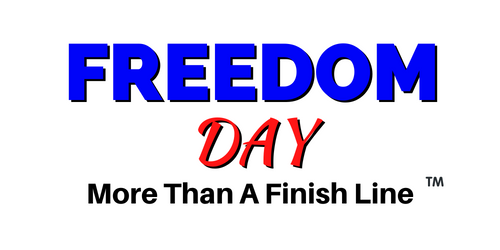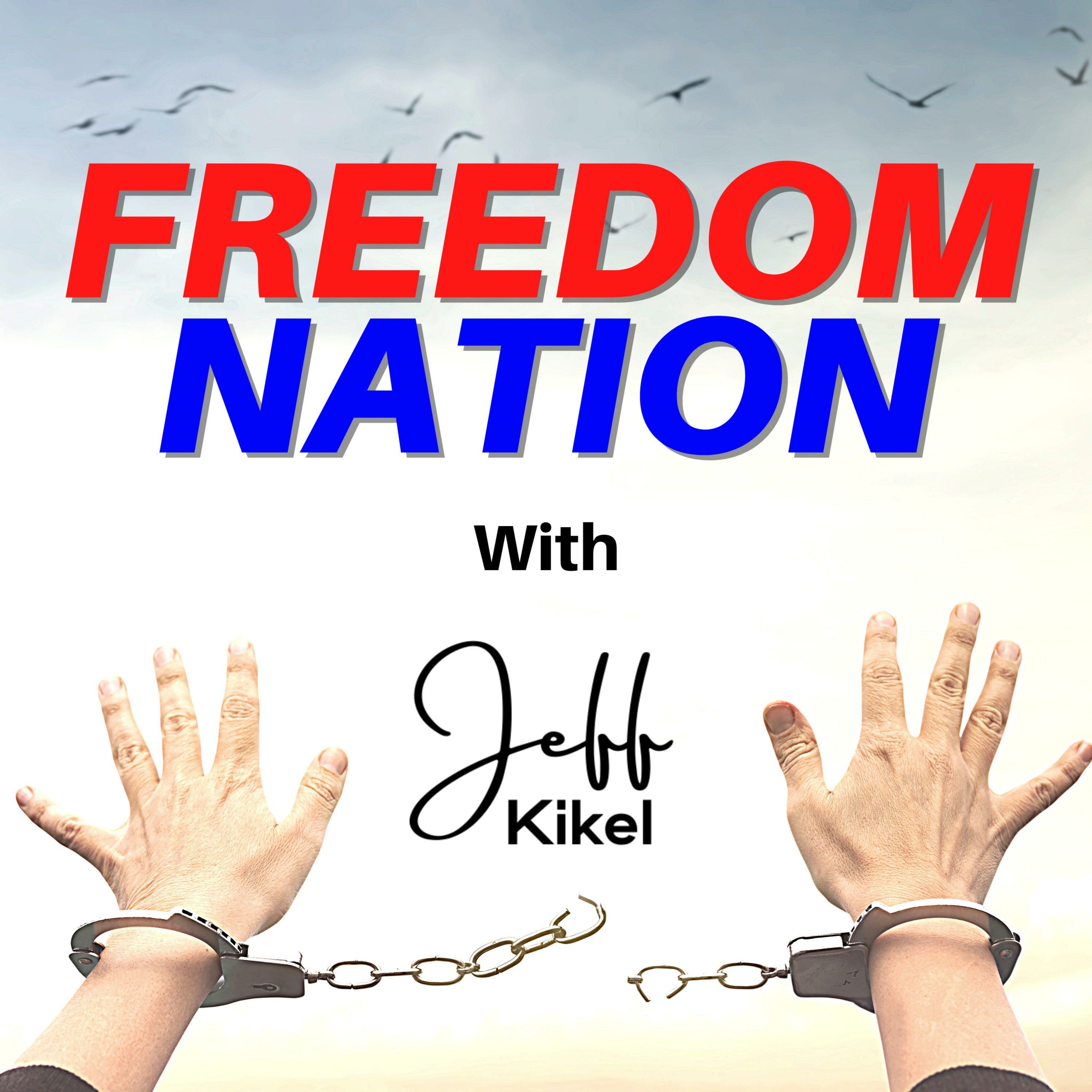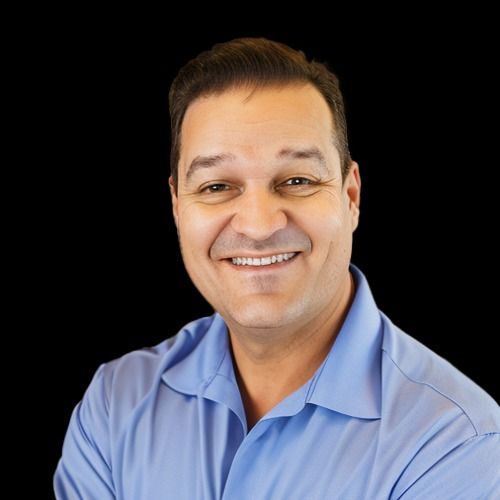Episode 167
Unpacking Tim Ferriss' The 4-Hour Workweek (Encore)
Prepare to challenge your work ethos as I explore the second book on my life-altering list, the 4-Hour Workweek by Tim Ferriss. Join me as I unpack the core principles of this transformative book and share how it radically shifted my perspective on work-life balance. Whether you're a seasoned entrepreneur or just starting your journey, this episode is packed with valuable insights that could be the game-changer you've been waiting for.
About Jeff:
Jeff spent the early part of his career working for others. Jeff had started 5 businesses that failed before he had his first success. Since that time he has learned the principles of a successful business and has been able to build and grow multiple seven-figure businesses. Jeff lives in the Austin area and is actively working in his community and supporting the growth of small businesses. He is a board member of the Incubator.Edu program at Vista Ridge High School and is on the board of directors of the Leander Educational Excellence Foundation
Connect with the Freedom Nation podcast at https://freedom-nation-podcast.captivate.fm/
Connect with Jeff:
Instagram: https://www.instagram.com/freedomnationpodcast/
Twitter: https://twitter.com/JeffKikel
LinkedIn: https://www.linkedin.com/in/jeffkikel/
Thanks for listening!
Thanks so much for listening to our podcast! If you enjoyed this episode and think that others could benefit from listening, please share it using the social media buttons on this page.
Do you have some feedback or questions about this episode? Leave a comment in the section below!
Subscribe to the podcast
If you would like to get automatic updates of new podcast episodes, you can subscribe to the podcast on Apple Podcasts or Stitcher. You can also subscribe in your favorite podcast app.
Leave us an Apple Podcasts review
Ratings and reviews from our listeners are extremely valuable to us and greatly appreciated. They help our podcast rank higher on Apple Podcasts, which exposes our show to more awesome listeners like you. If you have a minute, please leave an honest review on Apple Podcasts.
Transcript
FN Intro/Outro: Welcome to the Freedom Nation podcast with Jeff Kikel. On this show, Jeff shares his expertise in financial and retirement planning from a different perspective, planning for your Freedom Day, which is the first day that you wake up and have enough income or assets and do not have to go to work that day. Learn how to calculate what you need, how to generate income sources, and listen to interviews from others who've done it themselves, get ready to experience your own Freedom Day.
Jeff Kikel:Hey, everybody, it's Jeff here, once again with another episode of the 10 books that really helped me to set the foundation for my freedom day. And I wanted to share these books with you through a series of videos so that you understand why they're important to me and why you should consider reading these as part of your financial education. So the second book on my list is The Four Hour Workweek by Tim Ferriss. Now, Tim is an interesting cat, I originally came across him by the title of this book, and if you know anything about Tim, the whole idea of the book, the whole idea of the title was something he tested using Google AdWords to see what titles got the most response and the most interest. So that's where the four hour workweek came from, he didn't mean that you're going to have a four hour workweek, he didn't mean that you were going to quit your job and everything else. What he meant was, it was a concept and an idea. And it was an idea that made you want to read the book. Once you got into the book, you understood why it was so important. It was a massively important book. And it's time, I personally think the concepts of The Four Hour Workweek, and being efficient and traveling the world and using geo arbitrage. And all those things really are what has affected the millennial generation and Gen Z, because they really were the first generation that said, You know what, I don't want to do this, I don't want to do the whole 40 year, work my butt off work 6070 hours a week, I want to be as efficient as possible, I want to get my work done. And I want to be able to do it where and when I want to do it. So whatever you think about the millennial generation, and Gen Z, they have changed the world for the rest of us like it or not. And you know, a large part of that was because of this book. Now, I will tell you the four hour workweek, I own a very tattered copy of the book, I have read it at least once a year, usually I wait until vacation time, and I'll take it with me on vacation. The reason I do that is there's always something new that I pull from it, or that's a good reminder of what I do. So let's get into some of the concepts that are part of the book that I think are important for you and why you should read this. The first part about it, the first part of it is focused on an acronym deal. Definition, elimination, automation and liberation, that is Tim's concepts of how to get yourself to where you can free yourself. This concept was a major part of the creation of what I call idea. It's a philosophy that I use in my own business. And it's part of a video that I've done on this channel called procrastination for fun and profit. It is what I use. It's the filter I use in my business every day. The the key concepts that Tim talks about in this book with deal are extremely important for somebody that is trying to make that transition from a worker bee to their own person. So the first piece of it is definition, you've really got to define and figure out what are out at what's out there, you need to figure out what your goals are, you need to figure out what your plan is what you're trying to accomplish. And once you've done that, once it's defined and you've set specific numbers, you've set a goal for yourself, then you move on to the elimination phase, what can be removed from your life. Now one of the things that really the first time I was exposed to this is the 8020 principle. It was created by an Italian economist. It's called The Pareto principle. And that 8020 rule means that 80% of the end results are by 20% of your activities. And this falls throughout history. It falls throughout most things that are out there. If you look at almost anything 20% of the plants in your garden, will produce 80% of the vegetables. I see this in my own gardens. Those of you that follow me online and I share that I have you know 20% of the plants that are producing a ton of things. So it is just it's a physical rule that happens You're out. And we need to look at those 20% of activities that produce the most results, we need to be doing those most often and less of the busy work. So what can you eliminate from your schedule? Automation, what can be automated, what repetitive things can be that you do over and over and over again, that can be, you know, automated where a computer can do that where artificial intelligence can do that, whatever it is, automation is key, it is a massive part of what I do in my world, both from the electronic version to the outsourcing version where I hire people overseas, that run my operation for me, largely because I'm able to work with them when they're when I'm sleeping, they're working in most cases. So I have basically a 24 hour operation, liberate liberation is starting to embrace remote work with the time that this book was written before 2007 remote work was not as prevalent as it is today, we are now in the post pandemic era, remote work became the norm and has become at least in the hybrid situations for most people. And that eliminate or that liberation allows you basically to work from anywhere in the world that you want to. The next thing that Tim teaches is income autopilot, we call it passive income, but income autopilots these things that you can create, whether it's writing a book, creating a course, buying real estate, whatever it is creating these income autopilots that are working when you're off doing something else. Once again, I don't think it was anything new. But it was things that he adapted and really shared as a part of this outsourcing life. There is a section and it's worth it for the read. He took an article that a gentleman had written who had never done outsourced outsourcing before. And it's a hilarious article about how he hired out some people from India that basically took his life, you know, took over all the crazy things in his life. And it's worth it for the read. But it was really talking about outsourcing. And this was also not a very common thing. You know, big companies would outsource but small individual individuals and small companies, were not outsourcing at that time. Today, it's become much, much more prevalent. I personally use Upwork to find a ton of people that do everything from it video editing, to managing my podcast to everything else. And once again, they're able to work when I'm sleeping, and I'm working when they're sleeping. So we keep my world working 24 hours a day. One of the key things for Tim was he wanted to be able to travel. And so he brought up the concept of geo arbitrage. What is that it's basically being able to live places in the world where you can maximize the income that you're bringing in. So you know, let's say in your normal life, it costs you four or $5,000. To live, wherever you're living at, well, you might be able to cut that in half by living in another country. And while you're there, filling the void filling that, you know, what are you going to do if you're not working? Well, you know, in Tim's case, I think one of his first trips was over to Germany, where he kind of Vagabond it around Europe for a while and then ended up and in Argentina. And one of the key things he wanted to do that was kind of his bucket, one of his bucket list items was he wanted to learn tango, well, he ended up competing and winning a tango competition. And then he went around the world did all kinds of goofy crazy things as a result, but he filled the void. The other piece of it is, you know, a key concept here and the last two I think are extremely important. embracing failure and fear setting, you know, embracing the chance that you're gonna fail at stuff and that's okay, fail fast, learn from it, move on to the next thing, but if you don't do it, you're never gonna, you're never gonna succeed at anything, you're gonna sit there. If you're sitting in a cubicle listening to this right now, you're just going to keep sitting in that cubicle and dying just a little bit every day, like I did. I spent 25 years of my life working for other people, whether it was in an office or a cubicle, I sat there and a piece of me died every day and really liberating myself from those jobs. stablishing you know, my companies that I have, growing my wealth growing my passive income. Every day that I've been an entrepreneur, I've gained back a little bit of that life that I lost in the cubicle, but I just think back to 25 years that I wasted sitting in a cubicle scared that for me to go out. So the last thing I want to share and this is something I think is is just absolutely. One of the cool things. And it's the hardest thing to do. Because you have to do this yourself is what are called comfort challenges and Tim intersperses this throughout the book. But those comfort challenges are doing things just to make yourself uncomfortable. So that forces you to do them. I remember one of these That is hilarious is he would did a challenge where he just went out in public, and he just stared at people until they would turn away. So he would stare at them until they look. And then they would turn away. And you know, he's like, Okay, some of this may be a little creepy and strange, but it helped him to kind of get some of these challenges, get some of those fears out of whatever he was doing. So that's the four hour workweek, I highly, highly, highly recommended. It's old. I mean, it's 2007. The book was written, it was updated, I think early 2011 ish. But it's not been updated since. But a lot of the concepts in there are still valid today, I would absolutely encourage you to put this one on the reading list for the summer. And make sure that you make it part of there. Now subscribe to the channel, make sure that you hit the notification button as well, so that you will get these as we go. I'm dropping a whole bunch of these over the next several weeks, sharing my concepts and ideas out of these individual books, so that you put them on your reading list for the summer. Thanks a lot, and we'll see you back here the very next time.
Jeff Kikel:FN Intro/Outro: Thank you for listening to the Freedom Nation podcast. You can find us on Apple podcasts and all the major channels wherever you're listening. Please subscribe to the channel and leave a rating and review. If you have friends and family that could benefit from their own Freedom Day. Please share with them. Finally, join freedom nation by following us on Facebook, Instagram and Twitter.


